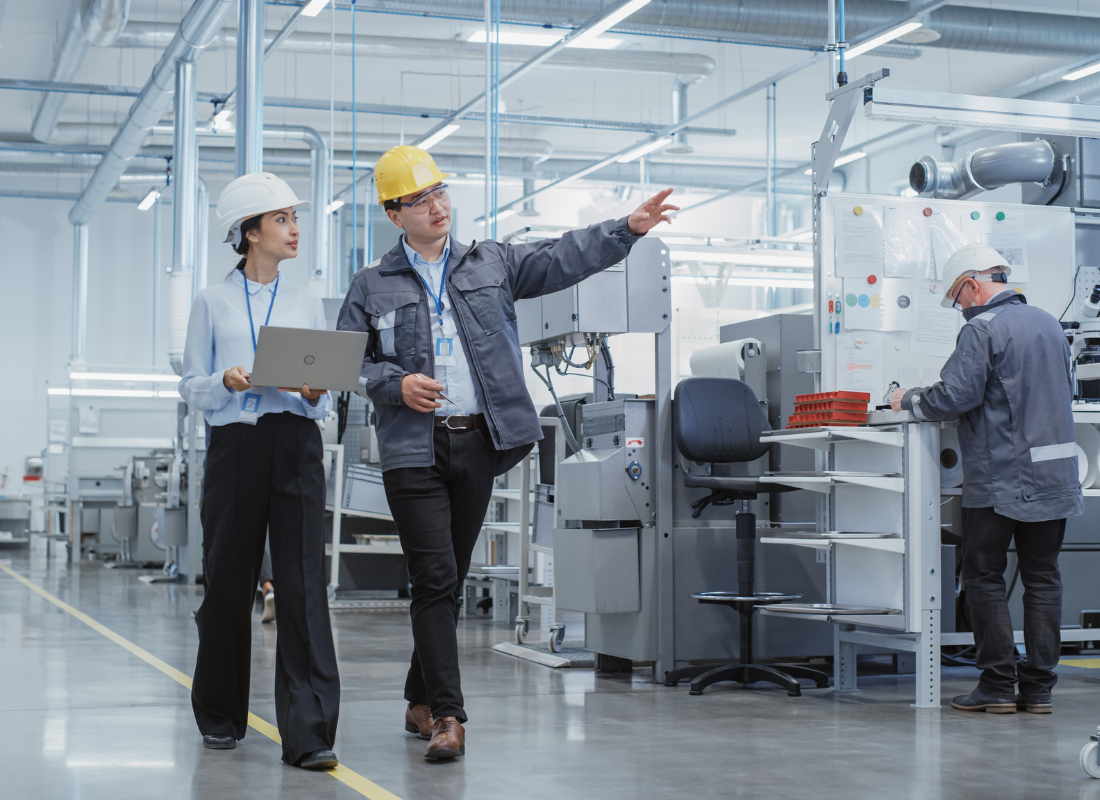What You Don’t Know… Can Save You Money
Originally published on June 20, 2017
Updated on February 5th, 2024
In our experience, manufacturers and other businesses often feel it’s too laborious a process to take advantage of federal and state tax incentives. In fact, in some cases companies aren’t even aware they exist. But the financial benefits usually outweigh the time and effort to apply for them.
The following list includes some of the tax incentives that can benefit manufacturers and technology firms. While not all businesses will qualify for every incentive, you could reap thousands of dollars in tax savings. So it’s well worth investigating what might work for your company—and we can help you understand the finer details of each.
Manufacturing Tax Credits
- Work Opportunity Tax Credit – Credits are available to employers for a portion of wages paid to employees who fall into certain targeted groups including qualified veterans, certain low income families, qualified ex-felons, qualified physical or mentally impaired individuals and qualified SSI recipients.
- Fuel Tax Credit – The Fuel Tax Credit can be claimed for the purchase of gasoline, aviation gasoline, undyed diesel fuel, undyed kerosene, and kerosene used in aviation. The vehicles consuming this fuel must be operated in one several qualifying off-highway uses such as forklifts and other vehicles commonly used in a manufacturing environment.
Research-Based Credits and Exemptions (federal and state)
- Federal Research and Development tax credit – Research and experimentation tax credits reward companies for investing in the development of new products and processes. Companies meant to benefit from these federal credits often overlook this opportunity.
- Florida Research and Development tax credit – The state version of this credit provides this corporate income tax credit for certain qualified research expenses, which is contingent in part on the eligible business having received the federal R&D credit (detailed in the first bullet).
- Research and Development Costs Exemption – The cost price of tangible personal property actually incorporated or fabricated into a research or development end product is exempt from tax. Costs eligible for the exemption include materials, labor or service costs, transportation charges, and any other expenses identifiable as a cost of the item of tangible personal property incorporated or fabricated into the end product. Machinery and equipment used primarily in research and development may also receive an exemption.
Accelerated Depreciation
- Code Sec. 179 expensing – You can elect to recover all or part of the cost of certain qualifying property, up to a limit, by deducting it in the year you place the property in service. You can elect the section 179 deduction instead of recovering the cost by taking depreciation deductions. The Code Sec. 179 limits allow up to a $500,000 dollar deduction, which becomes limited with capital investments exceeding $2,000,000.
- Bonus Depreciation – For qualifying property acquired during the year, bonus depreciation may be available as an additional deduction. The bonus depreciation percentage is 50 percent for property placed in service during 2015, 2016 and 2017; it then phases down to 40 percent in 2018 and 30 percent in 2019.
- Sales Tax Exemption for Industrial Machinery and Equipment – This exemption is available to any business whose primary business activity is at the location where the industrial machinery and equipment is used to manufacture, process, compound or produce items of tangible personal property for sale.
General Tax Credits, Deductions or Other Incentives (federal and state)
- Cost segregation studies – These studies analyze all costs associated with real estate. The purpose is to identify hidden personal or tangible property eligible for faster write-off. A company could achieve substantial cash benefits by reclassifying nonstructural building costs that are buried in its building construction or acquisition costs.
- Domestic Production Activities Deduction (DPAD) – An additional deduction of 9% is allowed on qualifying production activities such as manufacturing, selling/leasing/licensing manufactured productions, construction services, engineering or architectural services, software development and similar activities.
- Exemption for Materials Used in Manufacturing – Industrial materials, including chemicals and fuels, for future processing, manufacture, or conversion into articles of tangible personal property for resale when such industrial materials become components or ingredients of a finished product are exempt in Florida.
- Exemption for Electricity/Steam/Fuels/Boiler Fuels Used in Manufacturing – A Florida sales tax exemption applies to charges for electricity used by specified industries at fixed locations in Florida to operate machinery and equipment for qualified purposes. The exemption also applies to charges for steam used for qualified purposes.
- Exemption for Labor/Parts/Repairs Incorporated Into Machinery/Equipment – The cost of labor, parts and materials required for repairing industrial machinery, as well as equipment used in the manufacturing or preparation for shipping of tangible personal property at a fixed location in Florida, is exempt. Manufacturers are eligible for the exemption if they are among certain categories/industries. Note that purchases of natural gas, residual oil, recycled oil, waste oil, solid waste material, coal, sulfur or wood for use as a combustible fuel in an industrial manufacturing, processing, compounding or production process at a fixed location in the state are exempt from sales and use tax.
Florida Tax Exemptions for Purchasing/Installing Specialty Equipment
- Machinery and Equipment to Produce Electricity or Steam –The purchase or lease of machinery and equipment that are needed to produce steam or electrical energy and which are used at a fixed location is exempt from Florida tax. Such steam or electrical energy must be primarily used for manufacturing, producing, compounding or processing for sale items of tangible personal property.
- Semiconductor, Defense and Space Technology – Facilities certified as engaging in semiconductor, defense, or space technology production and/or research and development can purchase or lease machinery and equipment for their use tax exempt. The exemptions available include:
- Full (100 percent) exemption of tax on machinery and equipment purchased or leased
by a semiconductor facility - Building materials for clean rooms located in semiconductor facilities
- A 25 percent exemption of tax on machinery and equipment purchased or leased by a
defense or space technology facility - Note that machinery and equipment purchased or leased for research and development
activities must be used at least 50 percent of the time in qualifying research and development.
- Full (100 percent) exemption of tax on machinery and equipment purchased or leased
- Pollution Control Machinery and Equipment – Pollution control machinery and equipment used when manufacturing/processing tangible personal property for sale at a fixed location is exempt from Florida tax. Privately owned or operated landfills and construction and demolition debris disposal facilities may also purchase (tax free) machinery and equipment used to abate, monitor or prevent pollution. To qualify, the items purchased must be used, installed, or constructed to meet a law implemented by, or a condition of a permit issued by, the Department of Environmental Protection.
- Solar Energy Systems – Solar energy systems and the components of such systems as certified by the Florida Solar Energy Center (FSEC) are exempt from tax. The term “solar energy system” includes the equipment and requisite hardware that provide and are used for collecting, transferring, converting, storing, or using incidental solar energy for water heating, space heating and cooling, or other applications that would otherwise require the use of a conventional source of energy such as petroleum products, natural gas, manufactured gas or electricity.
Contact James Moore & Co. today to see how you can lighten your tax load through these incentives and other strategies!
All content provided in this article is for informational purposes only. Matters discussed in this article are subject to change. For up-to-date information on this subject please contact a James Moore professional. James Moore will not be held responsible for any claim, loss, damage or inconvenience caused as a result of any information within these pages or any information accessed through this site.
Other Posts You Might Like

